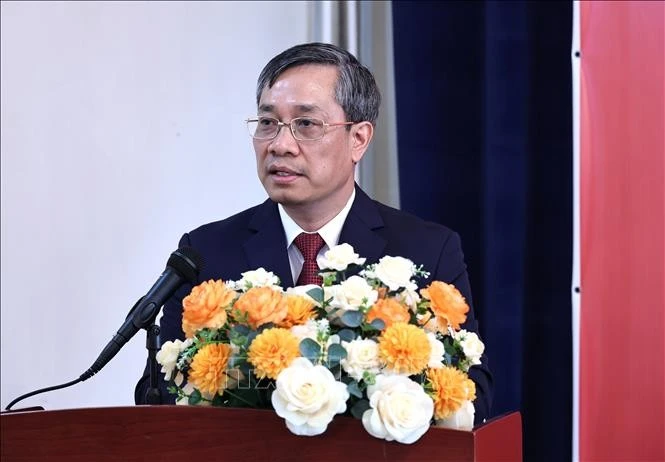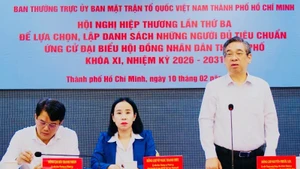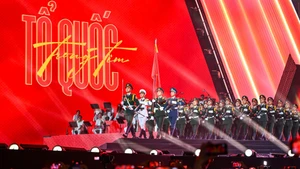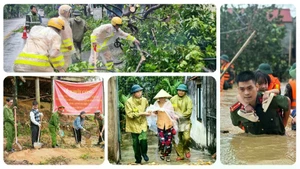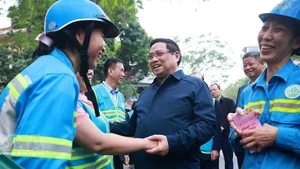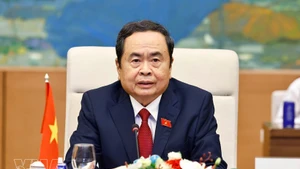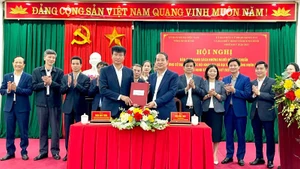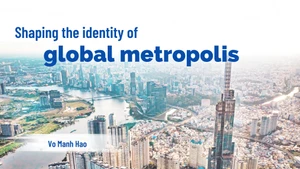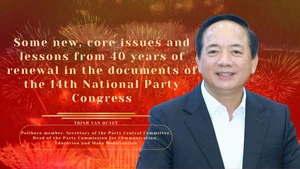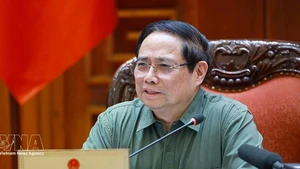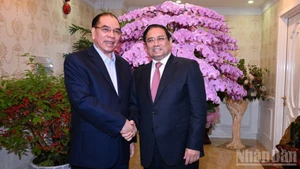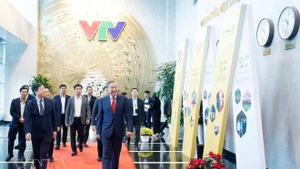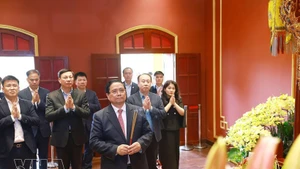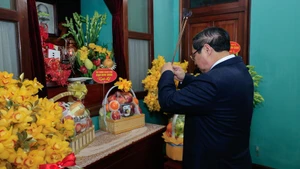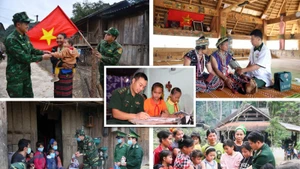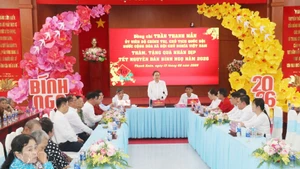The ongoing visit to Mongolia by Sen. Lieut. Gen. Tran Quang Phuong, member of the Party Central Committee and Vice Chairman of the National Assembly (NA), is expected to give new momentum to the Viet Nam-Mongolia Comprehensive Partnership and make bilateral ties deeper and more substantive.
Speaking to the Viet Nam News Agency, Vietnamese Ambassador to Mongolia Nguyen Tuan Thanh highlighted the significance of the September 30-October 3 trip and the future direction of bilateral cooperation.
According to the diplomat, Viet Nam and Mongolia share a long-standing friendship and have enjoyed cooperation across many fields. During the state visit of Party General Secretary and State President To Lam to Mongolia in 2024, the two countries elevated their relations to a Comprehensive Partnership, committing to expanding cooperation in economy, trade, culture, education, law, security and defence, among others.
Thanh stressed that cooperation between the legislatures of the two countries has always played an important role in strengthening mutual understanding and political trust, thereby laying a solid foundation for collaboration in other spheres. Phuong’s visit is expected to further materialise the common perceptions reached by high-ranking leaders of both nations.
First, the trip will reinforce political trust and consolidate the Comprehensive Partnership through high-level meetings and parliamentary dialogues, affirming the priority both sides give to bilateral ties.
Second, it will deepen cooperation between the two parliaments by strengthening exchanges between specialised committees, friendship parliamentary groups, and parliamentarians, especially women and young legislators. This will help ensure that commitments made by the two countries’ leaders are implemented effectively.
Third, the visit is expected to boost trade, investment and business connectivity. Enterprises from both sides will have opportunities to explore markets, exchange information on investment incentives, and facilitate stronger flows of goods in areas of strength.
Fourth, it will help enhance cooperation in culture and education, and people-to-people exchanges to foster mutual understanding and support for Vietnamese citizens studying and working in Mongolia.
Fifth, security and defence cooperation will be advanced, including joint efforts in law enforcement and experience-sharing in addressing common challenges such as climate change, non-traditional security issues, and transnational crime.
Finally, the visit will help enhance Viet Nam's global position and foster its international cooperation via coordination at multilateral forums such as the United Nations, the Asia-Europe Parliamentary Partnership Meeting, and the Asia-Pacific Parliamentary Forum.
In recent years, the Viet Nam-Mongolia relationship has witnessed dynamic development with many notable achievements. Political and diplomatic ties have been strengthened through regular exchanges of high-level delegations and the maintenance of cooperation mechanisms such as the political consultation and the Inter-Governmental Committee on Economy, Trade, Science and Technology.
Economic and trade relations have also seen encouraging progress, with two-way trade increasing significantly compared to previous years. The two sides have signed various agreements on economic, trade and agricultural cooperation, creating stable supply. Mongolia has exported goat and sheep meat to Viet Nam, while Viet Nam has shipped poultry meat and eggs to Mongolia.
Cultural, educational and people-to-people exchanges have been promoted, with both sides expanding scholarships, student and lecturer exchanges, and cultural and sports activities. The visa exemption policy for tourists and efforts to open direct flights between Ulaanbaatar and major Vietnamese cities such as Ha Noi, Ho Chi Minh City, Phu Quoc, and Nha Trang have further facilitated travel and tourism.
Information technology and digital transformation have emerged as promising new areas of cooperation. Viet Nam and Mongolia have begun exchanging experience in artificial intelligence (AI), e-government and digital public services. Mongolia has expressed keen interest in partnering with Viet Nam in AI development, digital economy, start-ups and new technologies.
The two countries also share common concerns about climate change and environmental protection. Mongolia will host the 17th session of the Conference of the Parties to the UN Convention to Combat Desertification (COP17) in 2026, an area of strong potential cooperation with Viet Nam.
To strengthen the Comprehensive Partnership, Thanh suggested several measures including expanding trade and striving for a balanced trade structure, with Viet Nam exporting consumer goods, processed agricultural products and technology items, while Mongolia capitalises on its strengths in animal husbandry and agriculture. Logistics and transport connectivity, particularly rail and air links, should be enhanced, with efforts to maintain direct flights and streamline customs procedures.
The two countries should deepen cooperation in digital technology, AI, data centres and start-ups, while sharing experience in e-government. Collaboration in agriculture and food security should also be expanded to ensure stable supply and sustainable growth.
On environmental cooperation, Viet Nam could support Mongolia in developing green models, renewable energy and efficient resource use.
At the same time, parliamentary cooperation should continue to be promoted through legislative exchanges, oversight activities and the protection of citizens’ rights. People-to-people contacts, student exchanges and tourism cooperation will also be further encouraged to enhance mutual understanding and ties between the two nations.
